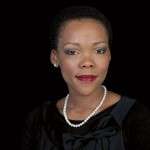Being a journalist was never going to be easy. And, writes Nikiwe Bikitsha, being a woman in the business means you have to be tougher than most.
I’ve earned a lot of unflattering accolades over the years, some of which were said to my face, others behind my back. They were usually quite unimaginative terms: iron lady, ice queen, tough cookie, ball-buster — the list is endless. The terms were thrown around to describe my demeanour or my approach to work, but very rarely did those people describe me as simply being good at what I do.
News journalism is a difficult line of work, which is true whether you are in the field reporting from trouble spots around the globe or in the comfort of the studio questioning prominent decision-makers in a bid to hold them to account. You have to be incisive, bold, determined and relentless — and, as Christiane Amanpour always reminds us, keep asking the questions until you get answers.
That is often not a task for the lily-livered, regardless of whether you are male or female.
However, I’ve observed over the years that although I might be described in unflattering terms because of what I think of as doing my job well, my male counterparts are often referred to glowingly: they are courageous, firm and authoritative. There seems to be an expectation and acceptance that these are masculine attributes and women displaying such qualities are viewed disapprovingly. Oh well.
At some stage, I suppose, we all wrestle with how people view us and what their expectations of us are. I haven’t allowed that to limit me in any way. Ever since I started reporting as a young, gawky, curious and green intern at the age of 18, I’ve never thought, nor was I led to believe, that there was something I couldn’t or shouldn’t do simply because I’m a woman. That’s partly because I come from a family of strong women who were constantly encouraged to achieve and those achievements were celebrated. I’ve also been lucky enough to work in newsrooms where women were in the majority and were in decision-making positions.
Even in instances where my superiors were male, women were dominant in the workforce, so it wasn’t as though there was an opportunity to discriminate. The question of being sidelined or stifled never really arose, even in the early days of my career. I’m really grateful for that, because, with that kind of affirmation from the get-go, I became inured to any gender-based hurdles people might place in my way.
One incident sticks with me, though. I was working as a radio news reporter in Cape Town in the late 1990s. I had been assigned to the Khayelitsha area. Late that evening people who had been standing in long queues started rioting because they were concerned that voting stations would close before they’d cast their vote.
I reported this to the office. I then got a call from an older, white male colleague who insisted that he now take over the story. My colleague had the temerity to tell me, and my editor at the time, also an older white male, that perhaps he ought to take over the story because it was now night time and the situation was becoming a bit hairy. He didn’t think it was safe for me, as a young woman, to be out there. I was touched by his concern, but told him in no uncertain terms that I’d be able to cope. He seemed shocked. I recall that everyone in the newsroom, including my editor, found his suggestion condescending and inappropriate in the extreme.
Often, of course, the discrimination isn’t as overt as that. And those are the truly troubling situations because you are often unsure whether what you are dealing with is indeed prejudice. With maturity and experience you learn to trust your instincts. For example, when a producer approaches my white male co-anchor about conducting a business or financial interview and doesn’t even make eye contact with me, the underlying assumption is that girls don’t get numbers and don’t know their deficits from their surpluses. So I speak up and question such maddening and flawed assumptions.
The latest research by UCT’s Graduate School of Business into the glass-ceiling phenomenon says it all boils down to confidence. It found that despite a legal environment that seeks to promote equality in the work-place women internalise the inequality inherent in their environments. They start believing themselves unworthy and undeserving of leadership positions. The study says that companies need to invest in the empowerment of their female staff and also in the personal growth of their female leaders. As with most things, it all begins at home.
***
BIOGRAPHY
Nikiwe Bikitsha is a multiaward-winning journalist. She has worked in broadcast journalism at Cape Talk 567, Talk Radio 702 and CNBCAfrica. She was with SAFM as co-anchor of AMLive with John Perlman and hosted SABC’s current affairs show Interface. She is currently a co-anchor for the eNews Channel’s flagship show, News Night, alongside veteran broadcaster Jeremy Maggs, and writes a regular column for the Mail & Guardian. Bikitsha holds a BA honours in journalism and media studies from Wits University. She was recently awarded the Fullbright Hubert Humphrey fellowship for 2012/13 and will spend 10 months at a US university. She is a self-confessed soccer mom to a delightful and clever nine-year-old boy who brings sanity and meaning to her otherwise crazy life.


